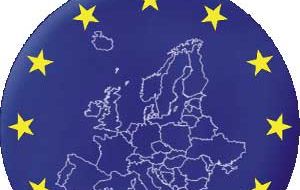MercoPress. South Atlantic News Agency
EU debates fisheries 2008 TAC, quotas (cuts and bans)

The European Union (EU) Council of Fisheries Ministers began negotiations this week that would determine fisheries TAC and quotas for next year.
The heads of fisheries of the 27 EU Member States gathered in Brussels to debate European Commission (EC) proposals to extend the anchovy ban in the Bay of Biscay, and impose TAC reductions and increases per the status of individual fisheries, along with other measures. Spain, in particular, will try to boost the proposal for species such as hake, angler and megrim. It will also present its stand on technical issues related to banned fishing gear. The EC's main proposal of extending the anchovy ban in the Bay of Biscay for at least the first half of the year is one that Spain supports but France opposes. The EU Executive is working on a multi-annual plan to change the management of the anchovy resource, a frequent point of friction for the two nations. Regarding the hake and Norwegian lobster fisheries in the Bay of Biscay and the Gulf of Cadiz, the Spanish Minister of Agriculture and Fisheries, Elena Espinosa, proposes maintaining the current number of 216 fishing days, rather than implement a 10% reduction as proposed by Brussels. For Northern hake, the most valued commercial resource for the Spanish fleet, the Commission proposed a 3% rise (in non-Spanish waters, in the Bay of Biscay and the Gulf of Scotland, Ireland, and Gran Sol). Similarly, Brussels proposes a 15% reduction on anchovy in the Gulf of Cadiz while the Spanish Government supports maintaining the current quota. Spain additionally proposes maintaining the current fishing status quo for megrim and angler in the North Sea versus an EU Executive request to reduce the quotas of these by 15 and 8%, respectively. These reductions contrast with the 10% increase in TAC that the EC proposed for southern hake. Spain argues this decision reflects an understanding that the status of the resource has improved. At Brussels the Spanish minister also plans to resolve other technical issues, which involve easing current EC limits in Irish waters protecting corals under the Natura Network 2000. Espinosa requested that the artisanal fleet targeting pouting and octopus in the western Galicia be exempted from the banned use of traps and cages -- measures protecting Norwegian lobster. The EU is willing to accept this specific claim made by Spain per an agreement reached in the Permanent Representatives Committee (COREPER), which consists of ambassadors of the 27 EU members. Lastly, Spain will look to ease other EC proposals, such as extending a current prohibition of stringed nets and driftnets in the waters of the North Sea to Iberian waters. (FIS).-




Top Comments
Disclaimer & comment rulesCommenting for this story is now closed.
If you have a Facebook account, become a fan and comment on our Facebook Page!